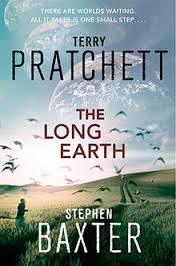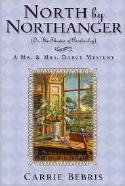This review contains affiliate links, which earn me a small commission when you click and purchase, at no extra cost to you. Thank you for supporting my small business and allowing me to continue providing you a reliable resource for clean book ratings.
A disgruntled scientist posts instructions on the internet teaching people how to make a “stepper,” which is a small electronic device powered by a potato. Adults all think this “stepper” is a harmless hoax, but then kids all over the world start disappearing after constructing the device and throwing the switch. Joshua Valiente is one of these. Late one night he flips the switch on his stepper and finds himself deep in a dark forest. We find out that this forest is on Earth, but it is Earth in another dimension — an Earth where man never existed. Joshua manages to stay calm and step back to our Earth, but then he returns to this alternate world to rescue the other kids who were unable to step back.
So begins “Step Day,” a day that becomes immortalized in the annals of the world as the day when humankind became aware that other dimensions really exist and that they can be reached with just a flick of a switch. These alternate dimensions are collectively known as “The Long Earth,” while the human-populated Earth is known as “The Datum” (a mathematical term referring to a fixed starting point).
Fifteen years after Step Day, Joshua is recruited by a computer named Lobsang to leave on a voyage to explore the Long Earth. Humans have only begun to scratch the surface of these alternate dimensions and what they represent. The two of them set off in an airship to find the farthest reaches of the Long Earth and they have a number of notable experiences (I mean besides being the first to enter hundreds of thousands of alternate existences). They encounter human colonies, Joshua survives an attack by sinister humanoid hunters, they find the remains of an ancient civilization, and they discover any number of new species. On their adventure, they run into another mystery. There are other humanoids who can step and they are fleeing something throughout the reaches of the Long Earth — moving towards the Datum. Joshua and Lobsang team up with Sally, who happens to be the daughter of the scientist who developed the stepper, and together they step farther and farther away from the Datum, seeking the threat that frightens the humanoids.
Near the end of The Long Earth they locate the threat — a benign collective organism that wishes to assimilate everything into itself (think of a friendly Borg). Lobsang joins with it in an attempt to dissuade it from its course and to preserve the individuality of millions of species. As the book ends we’re still uncertain whether Lobsang was successful in his self-appointed mission.
Though Joshua appears to be the main character, he is rather static and unchanging. Perhaps the real main character is humanity, because the really interesting parts of the book deal with the multitude of ways in which humans adapt to the Long Earth. Some are eager to exploit untapped wealth, while others leave the Datum to find a new type of pioneer existence, or to escape poverty, or just to keep moving. Some humans are unable to step, for reasons the scientists are unable to discover, and many of them are resentful of the Long Earth and their inability to access it. The book ends on an unsettling note with a violent group setting off a nuclear bomb in downtown Madison, Wisconsin.
I can’t say I liked The Long Earth; I found it too disquieting. But I did find it both thought-provoking and well-written. It reminded me a great deal of Ray Bradbury’s classic “The Martian Chronicles.” I think that’s what I will classify this book as — a science-fiction classic — because while I didn’t especially enjoy the book, I think the questions and thoughts that it provokes will stay with me for a very long time.
Rated: Moderate. There is a great deal of profanity — 74 instances by my count, including four F-words. There are a few instances of violence, but it’s generally not graphically depicted. There are some crude sexual references and language, but no actual sex in the book.
Click here to purchase your copy of The Long Earth on Amazon.





My YA book club RAVES about this book… however they all agree it should be archived under the adult section.